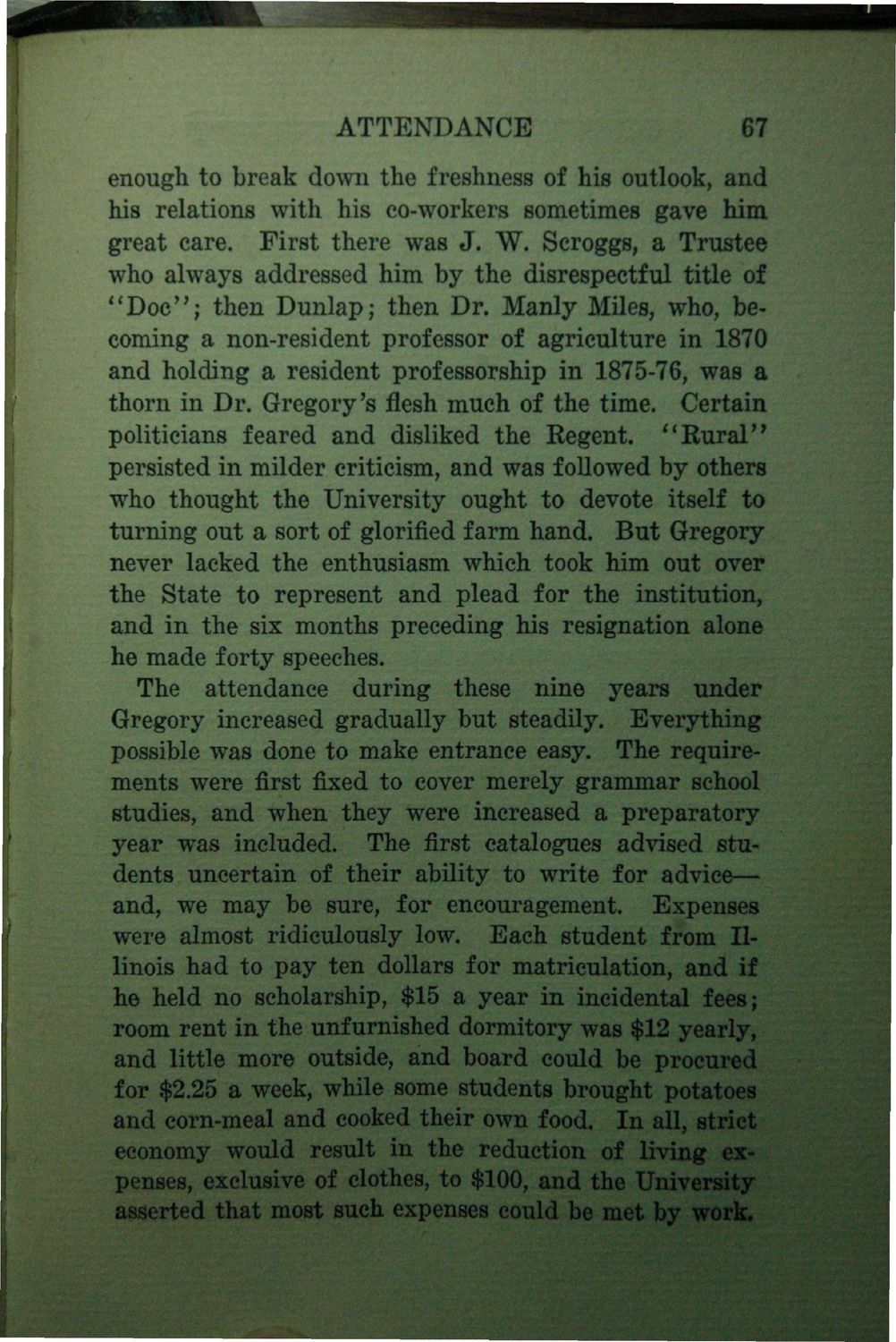| |
| |
Caption: Book - History of the University (Nevins)
This is a reduced-resolution page image for fast online browsing.

EXTRACTED TEXT FROM PAGE:
HIHHHH ATTENDANCE 67 enough to break down the freshness of his outlook, and his relations with his co-workers sometimes gave him great care. First there was J. W. Scroggs, a Trustee who always addressed him by the disrespectful title of "Doc"; then Dunlap; then Dr. Manly Miles, who, becoming a non-resident professor of agriculture in 1870 and holding a resident professorship in 1875-76, was a thorn in Dr. Gregory's flesh much of the time. Certain politicians feared and disliked the Regent. " B u r a l " persisted in milder criticism, and was followed by others who thought the University ought to devote itself to turning out a sort of glorified farm hand. But Gregory never lacked the enthusiasm which took him out over the State to represent and plead for the institution, and in the six months preceding his resignation alone he made forty speeches. The attendance during these nine years under Gregory increased gradually but steadily. Everything possible was done to make entrance easy. The requirements were first fixed to cover merely grammar school studies, and when they were increased a preparatory year was included. The first catalogues advised students uncertain of their ability to write for advice— and, we may be sure, for encouragement. Expenses were almost ridiculously low. Each student from Illinois had to pay ten dollars for matriculation, and if he held no scholarship, $15 a year in incidental fees; room rent in the unfurnished dormitory was $12 yearly, and little more outside, and board could be procured for $2.25 a week, while some students brought potatoes and corn-meal and cooked their own food. In all, strict economy would result in the reduction of living e jg j g& penses, exclusive of clothes, to $100, and the Universal asserted that most such expenses could be met by work.
| |